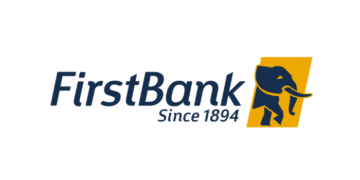Economic and finance experts have charged the Micro, Small and Medium Enterprises (MSMEs) to adopt ‘Factoring’ in their business operations.
Factoring is a type of finance in which a business would sell its accounts receivable (invoices) to a third party to meet its short-term liquidity needs. Under the transaction between both parties, the factor would pay the amount due on the invoices minus its commission or fees
The experts, who spoke at the virtual FITC 2nd Quarterly Advisory Roundtable session, themed “Factoring: A game-changer for the growth of MSMEs and the Nigerian Financial Services Industry,” held recently, noted that, factoring could be a game changer to the funding challenges facing MSMEs, pointing out that adoption of this model could make micro businesses make the right economic impacts.
In her welcome address, the managing director/ CEO, FITC, Chizor Malize, noted that the roundtable discussion was timely, given the benefits of factoring, especially in an economy like Nigeria.
“As a big supporter of SME’s, FITC remains committed to not only identifying key challenges faced by these important group, but also creating the platforms where solutions can arise. I am certain that significant outcomes will be reached to move factoring forward for the ultimate benefit of small and medium businesses and the long-term growth of the Nigerian economy,” she said.
The secretary general, Financial Services Industry(FCI), Netherlands, Peter Mulroy, in his keynote address, highlighted that factoring involves a shift from the usual mindset of securitising real assets to securitising financial assets, thus making receivables an investable asset class.
“For many SMEs, receivables are a significant component of the balance sheet liquid assets and unfortunately, they often lie dormant. Receivables financing thus aims to unlock the real value of these receivables,” Mulroy stated.
Speaking further, the FCI secretary general pointed out that there are currently 41 FCI members in Africa, up from just 10 members, 10 years ago.
According to him, it signals the growth and acceptance of factoring as a means of SME financing in Africa.
Reacting on the definition of factoring, Mulroy described it as the assignment or sale of accounts receivables to a third party, in addition to other specific actions. He stated that awareness of factoring in Nigeria was still low, however, its increased adoption would be a game changer for MSMEs.
Peter Mulroy emphasised the need for regulation to enable capital flows. He also stated that the regulatory framework must anticipate all relevant tax considerations, to avoid surprises.
He, however, stated that, he was confident that there would soon be established demand for factoring in Nigeria.
Mulroy also underscored the need to educate MSMEs to take advantage of factoring. He urged banks to change their mindset from risk acceptance, to enable the financing of intangibles. According to him, a formal Factoring Association is also needed locally, to drive growth.
The deputy general manager, Access Bank Plc, Yewande Soneye-Vaughan, in the panel discussion, at the event, acknowledged the challenges Nigerian MSMEs face in acquiring bank credit. According to her, despite contributing 48 per cent of GDP and at least 94 per cent of employment, MSMEs currently receive approximately 0.3 per cent of total credits administered in the country.
Addressing factoring from a taxation standpoint, Tax partner, KPMG Professional Services, Nike James recommended that regulators work with the accounting industry to set up the regulatory framework for factoring.
According to her, this was critical to preventing a similar situation which arose from the Securities Lending Act for capital markets, which then had to be amended via the Finance Act.
Managing director, Factoring & Supply Chain Finance Limited;Lanre Bakare suggested that the most important requirements to kick off the factoring market in Nigeria, are the legal and regulatory requirements. He emphasised that this was crucial for invoices to be recognized by law as an asset class, as MSMEs typically cannot meet the collateral requirements demanded by banks.
Lanre Bakare added that the Collateral Registry Legislation, which creates Receivables as a Security was passed in 2017.
According to him, it makes receivables an acceptable asset pledge for MSMEs, and should improve the ease of doing business and provide credit insurance. He mentioned that the issuance of credit guarantees and credit insurance legislation, should be considered, to allow securitization, as without credible counterparties, the industry would struggle to grow.
Another panelist, regional chief operating officer, African Export Import Bank (AFREXIM Bank), Eric Monchu Intong identified the trade finance gap in Africa as currently over $81bn, stating that, only approximately 40 per cent of trade finance in Africa is currently financed by banks.
According to Intong, MSMEs suffer the most because of these gaps, as loan facilities are not advanced by banks, largely due to the risk acceptance criteria deployed by financial institutions, which require some form of guarantee or collateral.
Intong also identified that many MSMEs are unaware of alternative financing solutions like factoring, noting that many lack the capacity to take advantage of available opportunities.
He also mentioned the need for regulators to distinguish between factoring and banking, since receivables serve as collateral in factoring.
The panel discussion, at the event, ended with several recommendations and conclusions, including the need for a robust regulatory framework and education of MSMEs on how to take advantage of factoring as a means of financing.
We’ve got the edge. Get real-time reports, breaking scoops, and exclusive angles delivered straight to your phone. Don’t settle for stale news. Join LEADERSHIP NEWS on WhatsApp for 24/7 updates →
Join Our WhatsApp Channel









